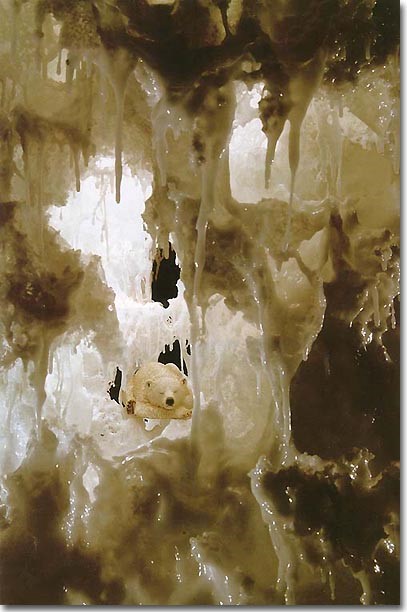
Words of Praise and Respectful Congratulations
His Holiness's unsurpassed brightness
encompasses the dharmadhatu.
With immovable three karmas, His Holiness is
internally and externally strong.
The most sacred one and sole Ruler of the Vajra
Beings,
His Holiness is the supreme holder of the 84,000
Buddha-dharmas, the one who is in charge of all dharma methods of Buddhism.
His Holiness was the first sambhogakaya Buddha
in the dharmadhatu.
All Buddhas attained Buddhahood by learning the
dharma taught by His Holiness.
Mahasattvas and great holy beings together
receive His Holiness's teachings and lineage under His Holiness's lotus
pedestal.
In this lifetime His Holiness has come to this
world and manifested the highest mastery of the Five Vidyas and the most
complete proficiency in exoteric and esoteric Buddhism.
Buddha Wan Ko Yeshe Norbu has always been the
Tathagata with the highest enlightenment.
I, a monk, prostrate before His Holiness and
beseech this Buddha to forever abide in the world and teach the dharma.
Khenpo Chucheng Qupei
December 1, 2006

BRIEF INTRODUCTION TO RESPECTED
KHENPO CHUCHENG QUPEI
Respected
Khenpo Chucheng Qupei is from Dege County in the Ganzi Autonomous District
of Sichuan Province. He became a monk at the Dege Gengqing Monastery at the
age of eleven. In the shramanera (novice monk) class at the Dege Gengqing
Monastery, he learned how to read and write Tibetan. He also learned
scriptures, rules, and rituals primarily of the Sakya order. At the age of
fifteen, he entered the Dzongsar Khamje Five Vidyas Buddhist Institute,
which is extremely influential in Tibet. When he was seventeen years old,
he received the precepts for monks from Lama Angwang Qupei Rongbo, a great
master of the Sakya order in the Kham District. At nineteen, he completed
his four years of study at the Khamje Five Vidyas Buddhist Institute, bid
farewell to his master, Great Khenpo Baima Dangqiu, and left his homeland
for India. There he met the holy virtuous one he dreamed of meeting—H.H.
Dharma King Sakya Trizin, who is a true nirmanakaya of Manjushri
Bodhisattva.
In
his twelve years at the Sakya Advanced Buddhist Institute, Respected Khenpo
Chucheng Qupei successfully learned all of the esoteric and exoteric dharma
teachings from two famous khenpos—Khenpo Mima and Khenpo Jiacuo.
Additionally, he studied and grasped profound Buddha-dharma theory and
practice by following many eminent and virtuous masters of all of the main
sects of Tibetan Buddhism. Of those masters, he primarily followed the
venerable lotus flower holder, H.H. Dharma King Sakya Trizin; H.E. the
Sakya Ngorpa Khenpo, Vajra Master Longdeng; the Sakya Tsharpa Dharma King,
H.E. Chogye Trichen Rinpoche; and H.H. Dharma King Mindrolling Trichen of
the Nyingma sect. Respected Khenpo Chucheng Qupei also taught at the Sakya
Advanced Buddhist Institute for five years.
At
a dharma assembly that took place in the year 2000 attended by over 10,000
monastics, H.H. Dharma King Sakya Trizin personally conferred upon
Respected Khenpo Chucheng Qupei a graduation certificate from the Sakya
Advanced Buddhist Institute and a hat that signified his academic degree
and great erudition. In 2003, H.H. Dharma King Sakya Trizin formally
conferred upon him position of khenpo along with the accompanying
certificate and instructed him to return to Tibet to spread the true dharma
of the Sakya lineage.
Following
the mandate given to him by H.H. Dharma King Sakya Trizin, Respected Khenpo
Chucheng Qupei established a society to learn a treatise called the Liang
Li Treasure. H.H. Dharma King Sakya Trizin was very satisfied with the
khenpo for such efforts.
|
|





Comments
Post a Comment